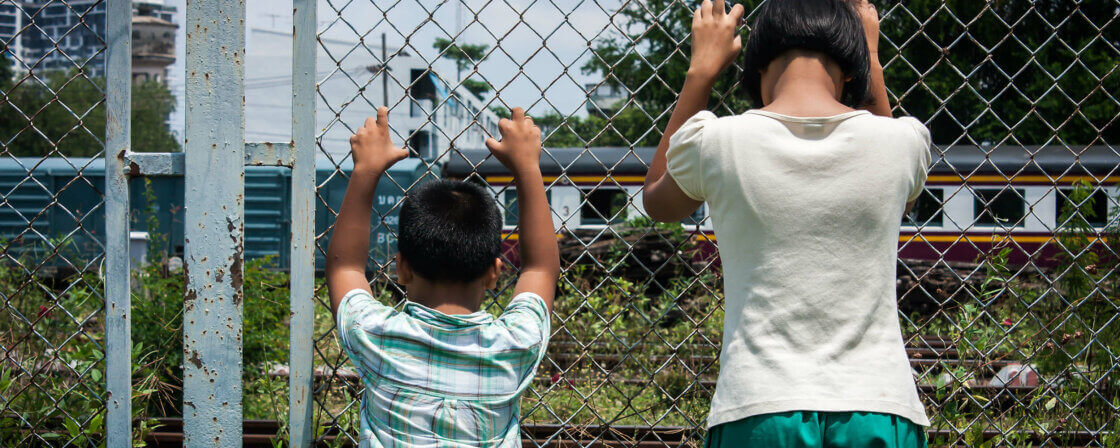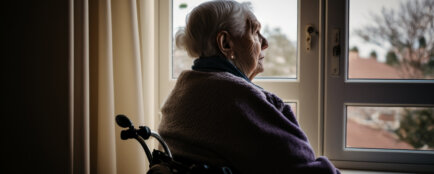As of 1 October 2025, the state has unified several social benefits into a single one – the so-called Super Benefit.
It replaces:
The aim is a clearer system and faster assessment of applications. Instead of four different benefits, a household now submits a single application where the authority automatically assesses whether and how much of each component of the Super Benefit is payable.
The SuperBenefit is intended for individuals and families whose income is insufficient to cover basic living needs and reasonable living costs. The following are assessed:
-
household income,
-
financial situation (newly mandatory means test),
-
the household’s ability to increase its income on its own account.
Tip for article
Tip: Losing a job puts a huge strain on our lives, not only psychologically, but also materially and financially. How should one proceed to reduce the impact of unemployment as much as possible, what is one entitled to in such a situation and how much support should one count on?
How to apply for support
The application for the Superdose is submitted at the local branch of the Labour Office of the Czech Republic – i.e. where the claimant actually resides. Forms are available both in person and online.
An important obligation for current benefit recipients
Households that received one of the cancelled benefits until October 2025 must apply for Superdose by 31 December 2025.
If they fail to do so, their benefit payments will be stopped.
Income will be assessed in the assessment of entitlement:
The means test now takes into account, for example, the possibilities of monetising savings, investments or property, but not normal household equipment.
Are you solving a similar problem?
Need help with your Superdose?
Have you applied for a grant or Superdose and been refused? Were you awarded less than the right amount for your situation?
We can help you verify your claim, file an appeal or complete your documents.
More information
- When you order, you know what you will get and how much it will cost.
- We handle everything online or in person at one of our 6 offices.
- We handle 8 out of 10 requests within 2 working days.
- We have specialists for every field of law.
Superdose ingredients
The superannuation is not a single lump sum that is the same for all claimants. Instead, it consists of several interrelated components that are assessed separately by the Jobcentre Plus – based on each household’s individual situation. This allows for a more precise consideration of the actual living conditions of the claimants, i.e. their income, specific needs, housing costs or childcare expenses. Each of the components is determined separately, but the final payment is made as a single benefit.
The subsistence component
The subsistence component builds on the earlier living allowance and is used to cover basic living needs, i.e. mainly food, drugs, hygiene, clothing, transport or other essential personal expenses. Its award is now firmly linked not only to an assessment of household income, but also to a number of other factors designed to enable a more accurate assessment of the applicant’s actual social situation.
The Labour Office now assesses the household income in detail and compares it with the minimum subsistence amount. At the same time, it introduces a means test, which examines whether the claimant has assets that could reasonably be used to cover basic living costs. The exceptions are ordinary daily necessities or normal household furnishings. It also takes into account the health condition and any special needs of individual household members – for example, if the applicant has to follow a specific diet, has regular medical expenses or is caring for a person with limited self-sufficiency.
Entitlement usually arises if the household income does not exceed 1,43 times the minimum subsistence level. The amount of the subsistence component itself then corresponds to the difference between the real household income and what is needed to achieve a basic standard of living according to the rules laid down by the State. This amount is individual and takes into account the number of household members, their age, state of health and other specific circumstances.
Housing component
The housing component replaces the former housing allowance and housing supplement. It is intended for households which, after paying rent, utilities and related services, have so little money that they have no money left to cover basic living needs.
The Superdose has brought some major changes to the award of this component. The requirement to be resident in the property is removed altogether. The actual cost of living is assessed only up to the ‘usual and customary’ level – i.e. that which corresponds to the current prices in the local area. As with the subsistence component, a means test is applied and the income of the applicant and all persons assessed jointly with him or her is examined in detail.
The Office also looks at whether the applicant is actively trying to improve his/her situation, in particular through reasonable work activity or seeking employment. The aim of this component is to ensure that the household has the means to at least meet the minimum subsistence level even after paying for housing and is not at risk of losing its housing.
Tip for article
Tip: Long-term care for loved ones, whether they are an elderly, infirm parent or a seriously ill offspring, is not cheap. Paying for a caregiver, assistance, or starting to care personally and losing a substantial portion of your earnings will usually put a significant strain on the family budget. Therefore, it pays to know the options the state has to support such situations and to apply for a care allowance.
Childcare component
The super allowance also includes a component to cover childcare costs. This component responds to the fact that the cost of childcare and education can be a significant burden, particularly for low-income families. The childcare component can cover a wide range of expenses, from the cost of school supplies, books and clothing for children to the cost of clubs, sports activities, school trips and transport to school.
The calculation of the childcare component continues to be based on the dependent child’s subsistence minimum, which varies according to the age of the child. Households can therefore receive more support at times when the costs of childcare are objectively higher (for example, when starting school or when funding leisure activities).
Work bonus
The final component of the Superannuation is the work bonus, which is designed to encourage low earners to enter the labour market or maintain employment despite low earnings. Modern welfare systems commonly include incentives and the work bonus works in a similar way – it rewards income from legal work and prevents situations where it would not ‘pay’ to work.
The work bonus is therefore designed to leave people with more money from their wages, even if they are low-wage workers. The aim is always to make employment more profitable than inactivity, while allowing households to maintain stability without losing access to the rest of the Superannuation.
Emergency Cash Assistance (ECA): the only benefit that does not change
The MOP remains a separate benefit from the Superdose.
It is a one-off aid in situations where:
-
there is a risk of harm to health (e.g. income below the subsistence minimum),
-
the household is affected by a natural disaster or fire,
-
a necessary expense needs to be paid (e.g. an administrative fee for documents),
-
basic household equipment is missing (e.g. fridge, washing machine),
-
risk of social exclusion.
The amount of the MOP depends on the specific situation – in the case of natural disasters, it can be up to several tens of thousands of crowns. As a rule, MOP cannot be granted retroactively, but in justified cases the Labour Office may grant an exception.
Summary
From October 2025, the welfare system has changed fundamentally. The Super Benefit consolidates several benefits into a single one to provide comprehensive support to households. It includes the components of a living, housing, childcare and work bonus. The Emergency Emergency Assistance continues to exist separately, which serves mainly in life crises and natural disasters. Eligibility for both the Super Grant and the MOP is assessed on an individual basis according to the income, assets and specific circumstances of the household.
Frequently Asked Questions
Do I need to claim Superdose if I am already receiving housing benefit or living allowance?
Yes. All recipients of cancelled benefits must submit a new application by 31 December 2025.
What if I have a low income but own a cottage or land?
The means test may result in no entitlement to Superannuation. The Authority will examine whether the property can be monetised.
Will I lose my benefits if I turn down a job offer?
Yes, work refused without good reason can lead to a reduction or withdrawal of support.
Is there any emergency immediate assistance left?
Yes. The MOP is independent of Superdose and is still provided in crisis situations.




